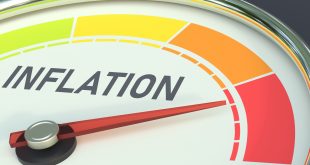Britain’s services sector expanded at its fastest pace in more than a year in August, boosted by a surge in new business and easing concerns over U.S. tariffs, according to a survey from S&P Global released on Wednesday.
Strong Services Performance
The UK Services PMI rose to 54.2 in August from 51.8 in July, marking its highest level since April 2024. The figure comfortably exceeded the 50.0 threshold separating growth from contraction, as well as an earlier flash reading of 53.6.
The composite PMI, which combines services and manufacturing, climbed to 53.5, a 12-month high, compared with 51.5 in July and an initial reading of 53.0.
Policy Implications and Inflation Pressures
The upbeat data offers some relief for Finance Minister Rachel Reeves as she prepares her autumn budget. Reeves has faced criticism for higher employer social security contributions in the previous budget, which businesses say increased costs and weighed on demand.
Despite the growth, inflation pressures persisted. Service providers raised prices in August at the fastest pace since April, coinciding with higher National Insurance Contributions and a minimum wage hike earlier this year. Input costs recorded their sharpest increase in three months.
Labour Market Weakness Persists
Employment remained a weak spot. Job cuts continued for the 11th consecutive month, marking the longest continuous stretch of staff reductions outside the 2008–2010 downturn and the COVID-19 pandemic period.
Demand Outlook Improves
The survey highlighted the biggest monthly gain in new business since March 2021, driven by stronger domestic demand and the first rise in exports since April. Optimism was further supported by lower borrowing costs and reduced fears of U.S. tariffs, helping improve expectations for future business volumes.
Economic Context
Although the UK outpaced its G7 peers in economic growth during the first half of 2025, much of that momentum came from higher government spending and businesses front-loading exports ahead of tariffs. The PMI figures suggest consumer demand and services remain crucial to sustaining growth,
 Noor Trends News, Technical Analysis, Educational Tools and Recommendations
Noor Trends News, Technical Analysis, Educational Tools and Recommendations





